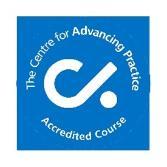Time management and show the ability to be able to prioritise.
Manage change and seek out innovative opportunities in order to enhance practice and service delivery.
These are reflected in the University’s Graduate Attributes Framework (see Graduate Attributes Framework).
The MSc Advanced Clinical Practice (with V300 Non-Medical Prescribing) provides access to structured and supported educational development to enable you to progress through your Masters Level study to meet the requirements set by Health Education England (2017) in their Multi-professional Framework for Advanced Clinical Practice in England.
The MSc Advanced Clinical Practice has been designed to meet the needs of the health professional whose desire is to develop their clinical career to a higher level as an advanced practitioner. The course philosophy is to acknowledge your prior experience and knowledge as a health professional and subsequently enable you to fulfil your potential as a postgraduate through the development of new understanding, critical insight and advanced level academic and clinical skills.
The course acknowledges your relevant prior experience and knowledge as a healthcare professional and subsequently enables you to fulfil your potential as a postgraduate through the development of new understanding, critical insight, and advanced level academic and clinical skills.
This course is open to practitioners registered with the Nursing and Midwifery Council (NMC), Health and Care Professions Council (HCPC), and General Pharmaceutical Council (GPhC).
Accreditation and Professional Regulation

The Centre for Advancing Practice
This programme is accredited by the Centre of Advancing Practice.
Health Education England's Centre for Advancing Practice has been established to standardise post-registration education by accrediting advanced practice courses that achieve the standards outlined in the multi-professional Advanced Practice Framework.
Practitioners who have completed accredited education programmes will be eligible to be listed on the Centre's Advanced Practice Directory. Programme accreditation from the Centre for Advancing Practice will bring a new level of consistency to the workforce and help showcase advanced practice within health and social care.
Programme accreditation from the Centre for Advancing Practice will bring a new level of consistency to the workforce and help showcase advanced practice within health and social care.


/prod01/wlvacuk/media/departments/digital-content-and-communications/images-18-19/iStock-163641275.jpg)
/prod01/wlvacuk/media/departments/digital-content-and-communications/images-2024/250630-SciFest-1-group-photo-resized-800x450.png)
/prod01/wlvacuk/media/departments/digital-content-and-communications/images-18-19/210818-Iza-and-Mattia-Resized.jpg)
/prod01/wlvacuk/media/departments/digital-content-and-communications/images/Maria-Serria-(teaser-image).jpg)
/prod01/wlvacuk/media/departments/digital-content-and-communications/images-2024/241014-Cyber4ME-Project-Resized.jpg)
/prod01/wlvacuk/media/departments/digital-content-and-communications/images-18-19/210705-bric_LAND_ATTIC_v2_resized.jpg)

